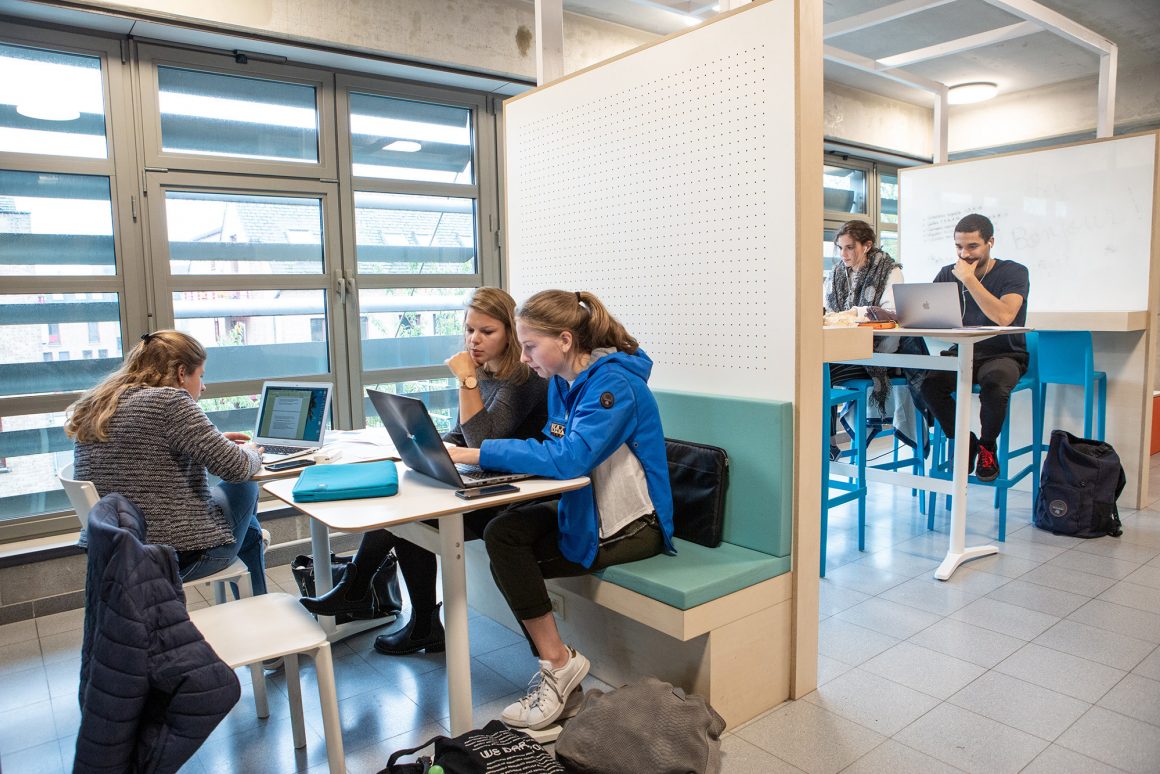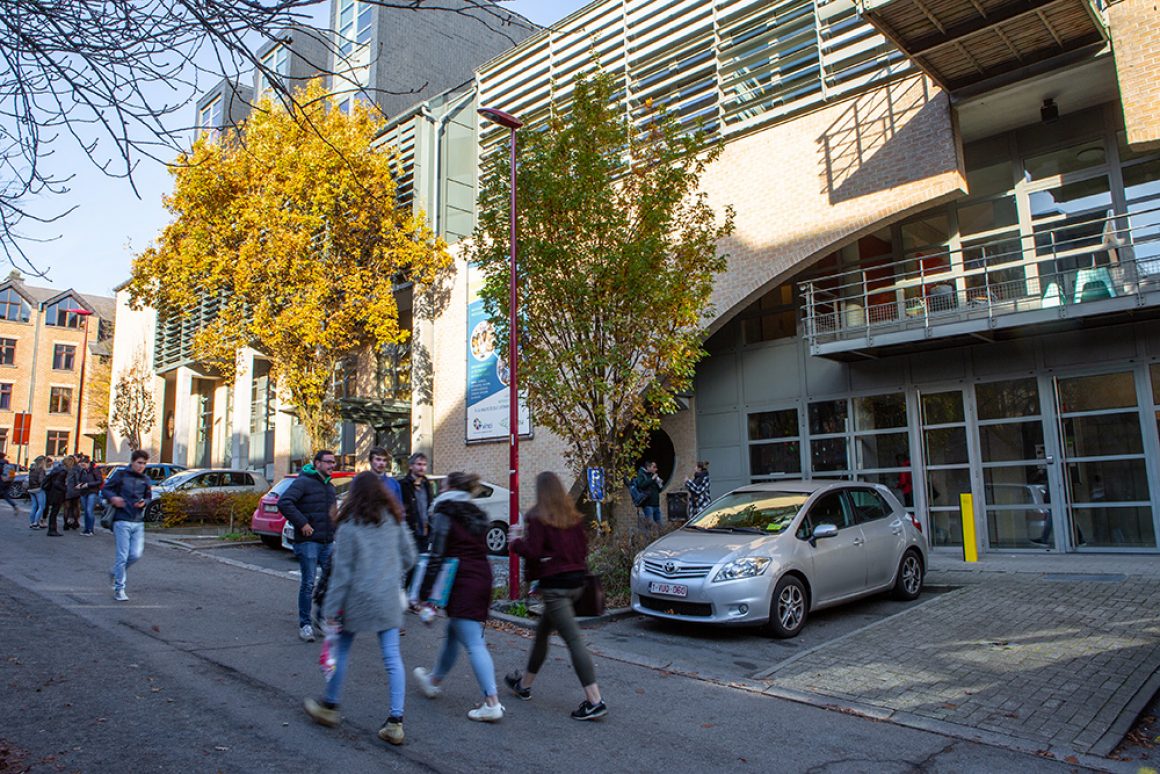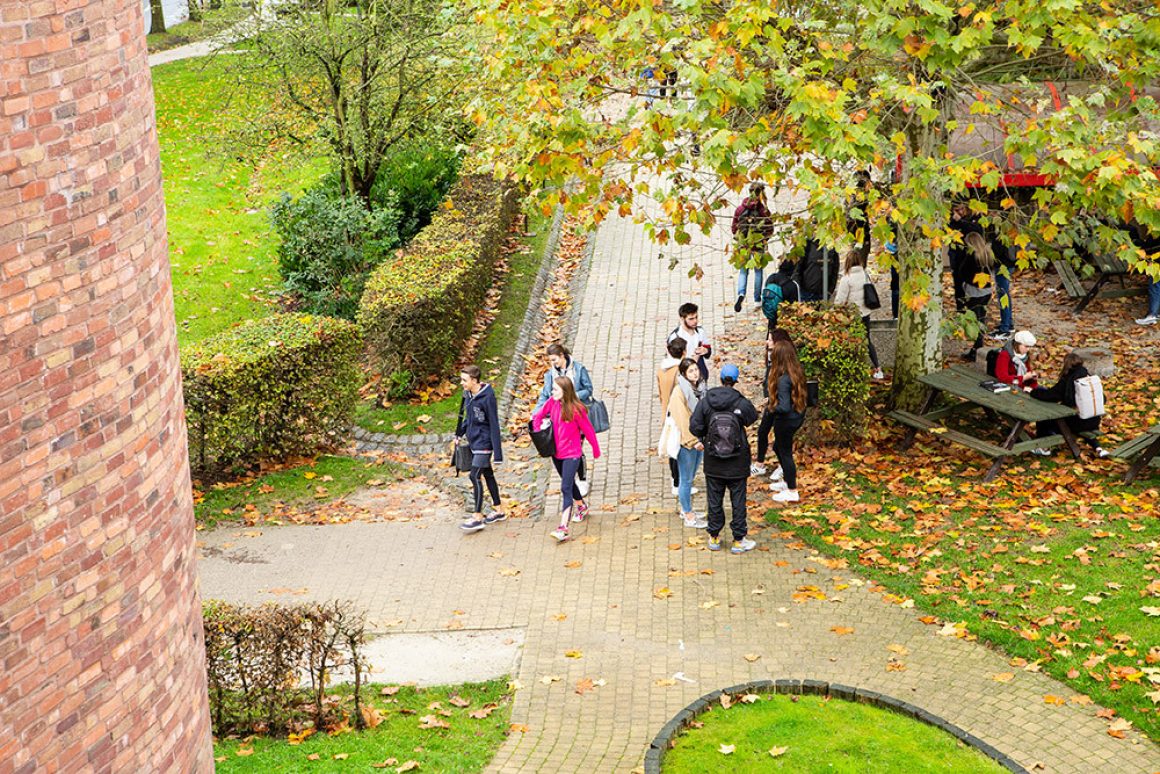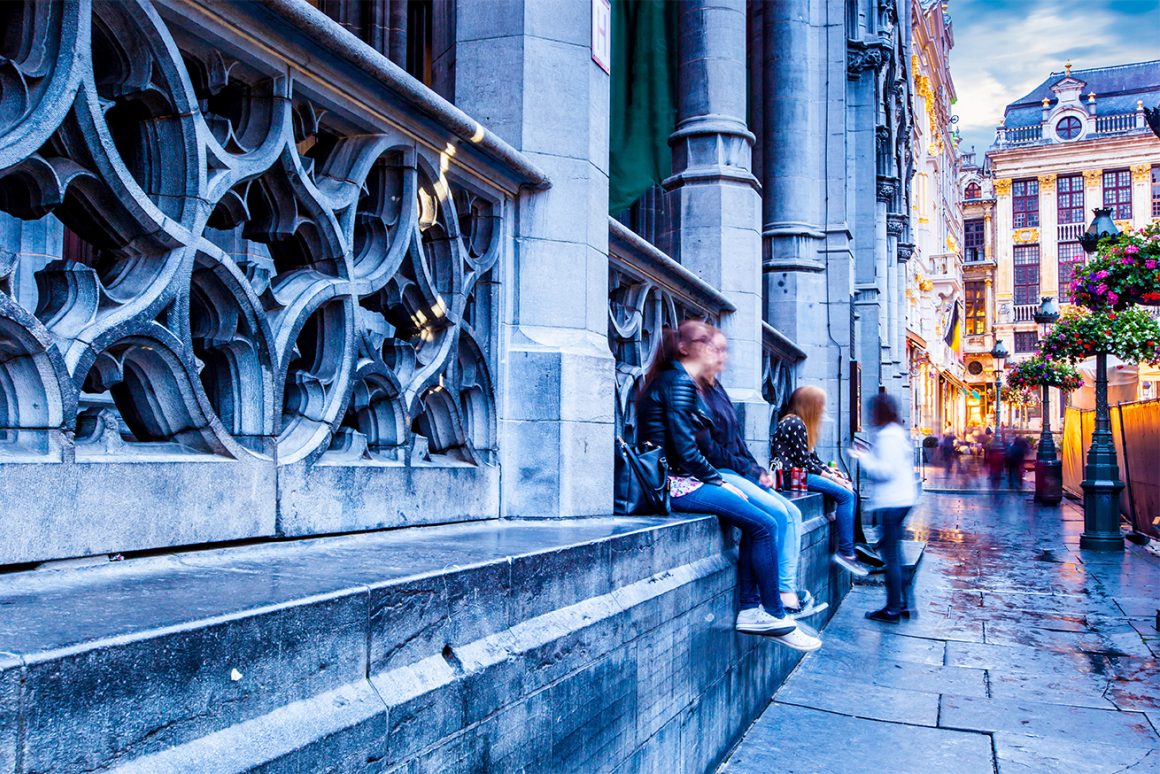Come and study at University College Vinci
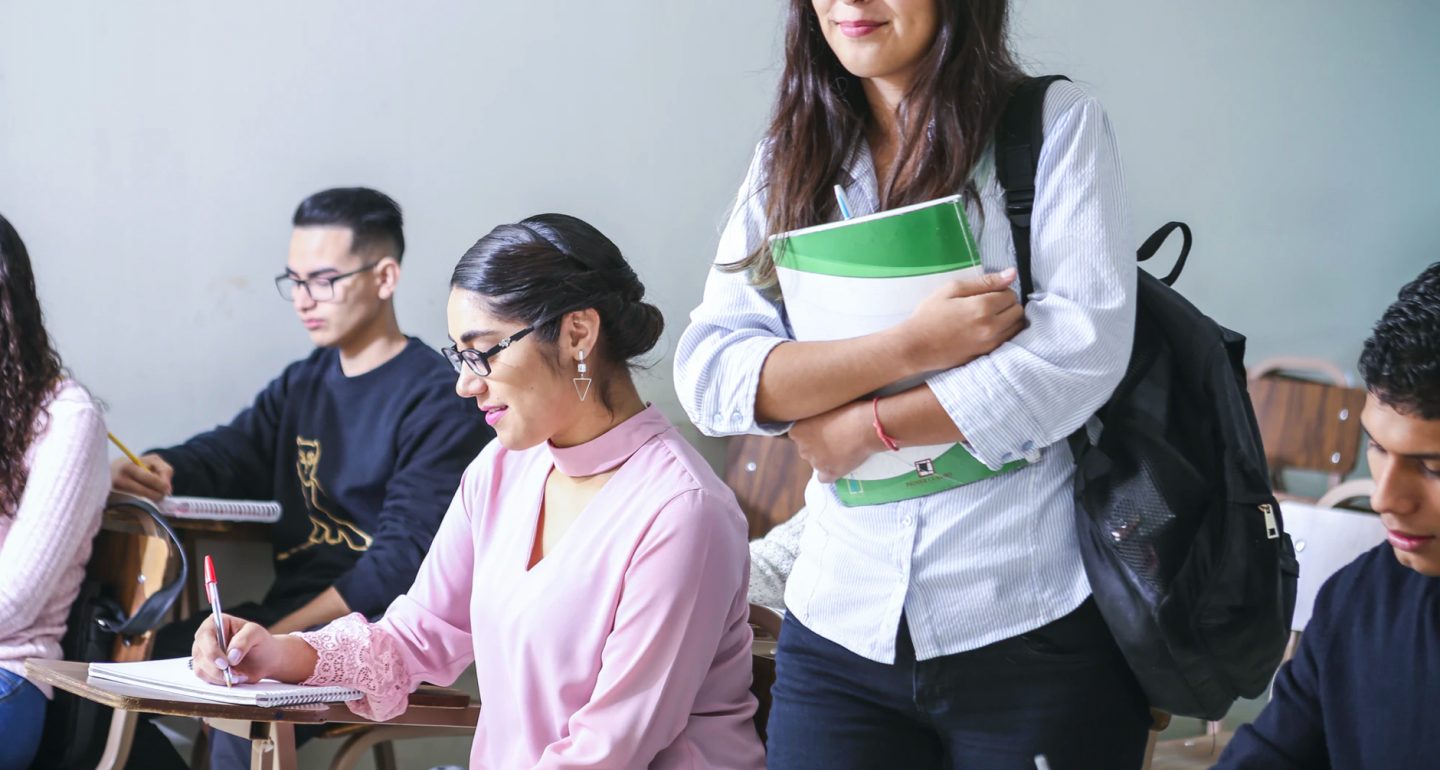
Bienvenue* Welkom* Bienvenida* Wilkommen* Sveiki atvykę* Welcome* Serdecznie witamy*
Welcome to the University College Léonard de Vinci! We would be very happy to welcome you to study with us or to do a work placement. On this page you will find all the information you need to plan, prepare and get your stay underway.
1. Our practical guide for the international student has all the information you need for your stay with us.
2. Study Programmes
Some Departments offer special programmes to exchange students:
- Programmes worth 20 to 30 credits composed of tailored Erasmus courses and courses taught by Departments at Louvain-la-Neuve are available to Erasmus students.
- An Erasmus module in English made up of courses worth 20 to 30 credits is offered by a number of Departments in the cities of Brussels, Louvain-la-Neuve and Namur.
- All de Vinci’s Departments allow you to include the module ‘Belgium: Education, Culture and Society’ as well as the course French as a foreign language (FLE) in your Learning Agreement.
3. How to apply to study at University College Vinci
Apply in 3 Steps
Step 1: Obtain nomination from your host institution
If you would like to study at University College Vinci as an exchange student, you should first contact the international office at your home university. Your international office is responsible for sending the list of the students it has selected, by email, to our International Relations Office: international@vinci.be
Proficiency in French: we recommend that you have a B1 level in French to be able to participate in the different learning activities.
Deadlines for nominations:
- For a Programme taught during the autumn term: by the 15 May at the latest.
- For a Programme taught during the spring term: by the 1st of November at the latest.
Attention! If you apply for an internship in the field of Health, deadline is the 15 October at the lastest.
Step 2: Apply
Students selected by their home institution need to send an application file containing:
- The application form (the link will be sent after nomination)
- A scanned identity photograph (JPEG format)
- A provisional Learning Agreement, signed by their home institution
Step 3: Confirmation
We will send you a letter of acceptance by email once HE Vinci has reviewed your application.
4. Academic Calendar
The academic year is organised as follows:
Autumn term
- Mid-September: Start of Autumn term classes
- Beginning of November: Autumn break (4 days)
- Mid-December: end of Autumn term classes
- End of December: 2 weeks winter holiday and ‘blocus’ (=exam preparation)
- January: examination session (= evaluations)
Spring term
- Beginning of February: Start of Spring term classes
- End of February: Carnival week holiday (1 week)
- Beginning of April: Spring holiday (2 weeks)
- Mid-May: end of Spring term classes and ‘blocus’ (exam preparation)
- June: examination session (evaluations)
- In August-September: second examination session (resits)
5. University College Vinci: located in Brussels & Louvain-la-Neuve
The 20 Departments that make up HE Vinci are located across three campuses, in two different cities. You should therefore look for accommodation near to the campus where you will be studying.
In Brussels
The Ixelles Campus is home to the following Departments: Assistant in Psychology; Audiology; Childhood care and education; Speech Therapy; Psychomotricity.
The Woluwe Campus is home to the following Departments: Physiotherapy; Podiatry; Occupational Therapy; Youth Worker in Physical Education and Sport: Youth Worker Specialised in Psycho-Educational Support; Nursing; Midwifery; Nutrition; Medical Imaging; Medical Biology; Chemistry; Computer Science: Software development.
In Louvain-la-Neuve
The Louvain-la-Neuve Campus is home to the following Departments: Nursing; Preschool teacher; Primary School Teacher; Certified Lower Secondary Education teacher (Sciences, Human Sciences , Mathematics, French and Religion, French as a Foreign Language, German, Dutch and English).
6. Your arrival in Belgium
For European Union citizens, a valid identity card or passport is sufficient. For non-EU citizens a valid passport is required.
A Visa may be required in some situations. You will find all the information you need about visas as well as general advice for travelers entering Belgium on the following website diplomatie.belgium
COVID-19
For up-to-date information on the Covid situation in Belgium you can consult the following site: https://www.info-coronavirus.be/fr/
Getting to Brussels
From the Brussels National airport (Zaventem)
Take the train to Brussels Central station.
From the Brussels Central railway station
To reach the Ixelles campus : Take metro line 1 or 5 and alight at Maelbeek station; or take the 38 bus going to Héros and alight at Idalie.
To reach the Woluwe campus: Take the metro line 1, direction Stockel and alight at Alma station
From the Brussels Midi railway station:
To reach the Ixelles campus: Take metro line 2 or 6 direction Elisabeth; Alight at Arts-Loi station.
To reach the Woluwe campus: Take metro line 2 or 6; Change at Arts-Loi station then take metro line 1 direction Stockel; Alight at Alma station.
From Brussels South Airport (Charleroi)
The shuttle bus Brussels City Shuttle provides the connection between the airport and Brussels centre (stopping at Brussels-Midi station).
Getting to Louvain-la-Neuve
From the Brussels National airport (Zaventem):
Take the train to Brussels Midi station
Then take another train to the station Louvain-la-Neuve Université (BE CAREFUL, not ‘Louvain’, which is a different university town).
From Brussels South Airport (Charleroi):
Take a shuttle bus to the Charleroi-South station
Take a train to the Brussels-North station
Take a second train to the Louvain-la-Neuve Université station (BE CAREFUL, not ‘Louvain’, which is a different university town)
7. Living in Brussels and Louvain-la-Neuve
Cost of living
The basics: a portion of fries costs 3.50 €, a waffle around 2€ and a beer 2.50€.
In total, you should plan for a monthly budget of around 700-900 euros to cover your everyday living costs in Belgium:
- For your accommodation, you should plan for a monthly budget of 450-550 €.
- For food and drink, plan for between 150 and 250€/month. There are numerous supermarkets, and each Commune also has a weekly market. HE Vinci also has its own solidarity grocery store to which you will have access.
- All HE Vinci campuses are well served by public transport. Full details are included in the International Student’s Practical Guide.
Getting around on public transport
All public transport in Brussels is provided by one company, the STIB.
The Louvain-la-Neuve campus is pedestrianised. If you want to explore beyond Brussels the easiest way is to travel by bus or train.
The Belgian railway operator is the SNCB
The bus network serving Walloon Brabant is the TEC
Accommodation
Belgium can offer a range of accommodation options, including ‘studios’ (these are small flats and are called ‘kots’ locally) or flatsharing.
To find a place to stay, a large number of offers can be found on Facebook groups, which is a very efficient way to find offers.
- BXL TO RENT –word of mouth
- BXL: rent or share an apartment, or opt for a sub-lease room
Numerous websites list offers of accommodation. Among the most reliable ones are:
8. Welcoming you to HE Vinci
The International Relations Office organises a welcome day as well as cultural and social activities for exchange students in all Departments. These activities are provided free of charge by the International Office.
Sports
HE Vinci possesses several sports halls on the Woluwe campus. They main purpose is to serve the needs of several academic programmes (Physical Education, Sports Coaching and Youth Worker Specialised in Social and Sports Activities).
Other sports facilities are also available:
- The Mounier Sports Centre on the Woluwe campus.
- The Blocry Sports Centre on the Louvain-la-Neuve campus.
For an affordable price (€35), you can obtain a Sport Card giving you access to some sixty sports disciplines.
9. Contact
The International Relations Office is available to support you throughout your stay.
You can reach them at any time by e-mail at: international@vinci.be.
One or more international coordinators are also present in each department to help you with information about the programmes.
